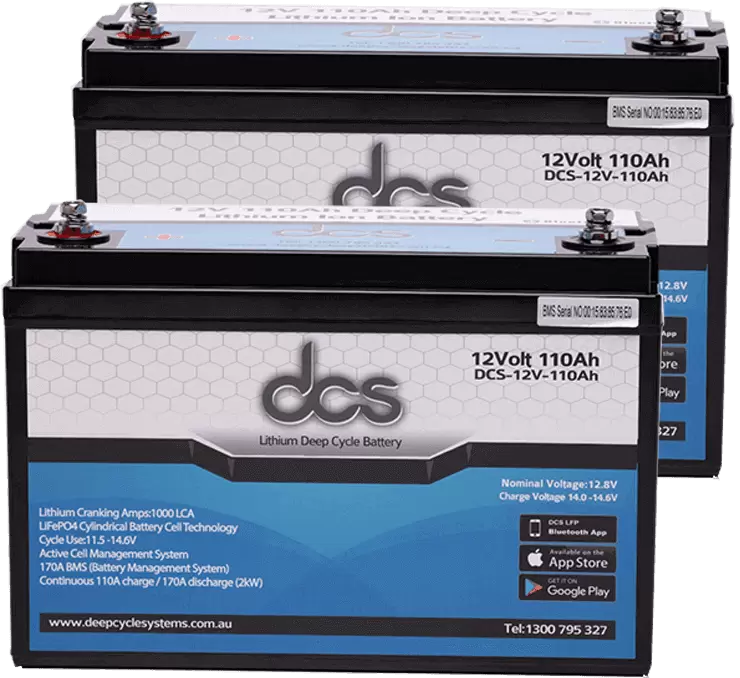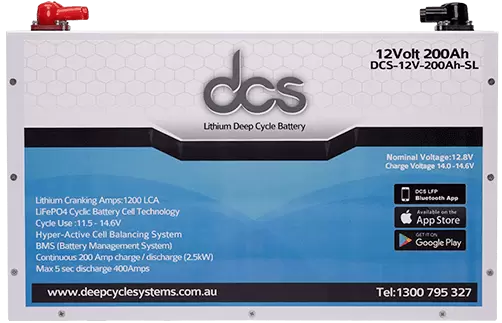Lithium-Batteries are revolutionizing our world and the way we power it. From smartphones to electric cars, these lightweight, powerful batteries are the lifeblood of the modern world and are changing the way we live our lives. Lithium Batteries are efficient, long-lasting, and have a wide range of applications, from providing energy storage solutions for renewable energy sources to powering everyday objects. In this blog post, we’ll take a look at how Lithium-Batteries are impacting our world, and how they are likely to continue to do so in the future.
Understanding Lithium Solar Batteries
Lithium solar-batteries are a game-changer in the world of renewable energy. These innovative batteries are designed to harness the power of the sun and provide sustainable energy solutions. But how exactly do they work?
Lithium Solar Batteries, also known as lithium-ion batteries, are composed of several key components. They contain a positive electrode, known as the cathode, a negative electrode, known as the anode, and an electrolyte solution that allows the flow of ions between the two electrodes. When sunlight hits the solar panels connected to the battery, it generates an electrical current that charges the battery. This stored energy can then be used to power various devices or be stored for later use.
One of the main advantages of lithium solar-batteries is their high energy density. They can store a significant amount of energy in a small and lightweight package, making them ideal for portable applications. Additionally, Lithium-Batteries have a long lifespan and can withstand hundreds, if not thousands, of charge-discharge cycles without significant degradation.
Advantages of Solar Lithium Batteries
Solar Lithium-Batteries offer numerous advantages that make them a superior choice for energy storage solutions. One of the key advantages is their ability to harness and store energy from the sun, providing a sustainable and renewable source of power. This means that even on cloudy days or during nighttime, solar Lithium-Batteries can continue to provide electricity, making them a reliable option for off-grid applications.
Another advantage of Solar Lithium Batteries is their high energy density. This means that they can store a large amount of energy in a compact and lightweight package, making them ideal for portable applications such as camping, hiking, or even powering medical equipment in remote areas. The lightweight nature of these batteries also makes them an excellent choice for electric vehicles, as they help to reduce overall weight and increase efficiency.
In addition, solar Lithium-Batteries have a long lifespan and can withstand numerous charge-discharge cycles without significant degradation. This makes them a cost-effective option in the long run, as they require less frequent replacement compared to other types of batteries.
The Rise of Electric Vehicles
The rise of electric vehicles (EVs) is undeniable, and Lithium-Batteries are at the forefront of this transportation revolution. As the world seeks to reduce carbon emissions and transition towards more sustainable forms of transportation, EVs powered by Lithium-Batteries have become the go-to choice for eco-conscious drivers.
One of the key advantages of electric vehicles is their environmental impact. Unlike traditional gasoline-powered cars, EVs produce zero tailpipe emissions, significantly reducing air pollution and greenhouse gas emissions. This not only improves air quality, but also helps combat climate change.
But it’s not just the environmental benefits that are driving the rise of electric vehicles. EVs are also known for their superior performance. Electric motors provide instant torque, making EVs incredibly quick and responsive on the road. They also have lower maintenance costs compared to internal combustion engine vehicles, as there are fewer moving parts that can wear out over time.
Solar Energy and Deep Cycle Batteries
Solar energy is one of the most abundant and renewable sources of power on our planet. By harnessing the power of the sun, we can generate clean and sustainable electricity. However, the challenge lies in storing this energy for later use, especially during periods of low sunlight or at night. It is where Deep Cycle Batteries come in.
Deep-cycle batteries are specifically designed to provide long-lasting power storage for solar energy systems. Unlike regular batteries, which are optimized for short bursts of high energy output, deep cycle batteries are built to discharge slowly and provide a steady stream of power over an extended period of time. It makes them perfect for storing solar energy, as they can effectively store the excess energy generated during the day for use during the night or during periods of low sunlight.
One of the key advantages of deep cycle batteries is their ability to withstand frequent charge-discharge cycles without significant degradation. It means that they can be used day after day, year after year, without losing their capacity to store and provide power. Additionally, deep cycle batteries are highly efficient, with a low rate of self-discharge, ensuring that the stored energy is available when needed.
Portable Devices Powered by Deep Cycle Batteries Solar
Portable devices have become an integral part of our daily lives, and deep cycle batteries play a crucial role in keeping these devices powered up and ready to go. Whether you’re camping in the great outdoors or relying on medical equipment in remote locations, deep cycle batteries provide the convenience and versatility you need.
For outdoor enthusiasts, Deep Cycle Batteries Solar are essential for powering camping gear such as portable refrigerators, fans, and lights. These batteries have the ability to store a significant amount of energy, ensuring that you have power for all your outdoor adventures. Additionally, deep cycle batteries are designed to withstand rugged conditions, making them reliable even in harsh environments.
Lithium Battery Safety and Disposal
Regarding Lithium-Batteries, safety should always be a top priority. These powerful energy sources have revolutionized our world, but it’s important to understand how to handle and dispose of them responsibly to ensure their longevity and minimize any potential risks.
First and foremost, it’s crucial to handle Lithium-Batteries with care. Avoid exposing them to extreme temperatures, as this can cause damage and increase the risk of overheating or explosion. Additionally, make sure to store them in a cool, dry place away from flammable materials to prevent any potential accidents.
When it comes to disposing of Lithium-Batteries, it’s essential to follow proper guidelines. These batteries contain toxic chemicals, so they should never be thrown in the regular trash. Instead, look for designated recycling centers or drop-off locations in your area that accept Lithium-Batteries. Many electronics stores or local recycling programs offer battery recycling services to ensure their safe disposal and to recover valuable materials.
Innovations in Solar Deep Cycle Batteries Technology
The field of solar deep cycle battery technology is constantly evolving and pushing the boundaries of what is possible. Innovations in this area are opening up new possibilities for renewable energy storage and making solar power more accessible and efficient.
One exciting development in solar deep cycle batteries is the use of advanced materials and designs to improve energy storage capabilities. Researchers are exploring the use of materials such as graphene and lithium-sulfur to enhance battery performance and increase energy density. These advancements could lead to batteries that can store even more energy in a smaller and lighter package, making them ideal for a wide range of applications.
Another area of innovation is in battery management systems. These systems monitor and optimize the performance of deep cycle batteries, ensuring they are operating at their full potential. Advancements in battery management technology can improve efficiency, prolong battery lifespan, and enhance overall system performance.
In addition, researchers are working on developing new methods for charging deep cycle batteries. It includes exploring the use of wireless charging technology, which would eliminate the need for physical connections and make charging more convenient.
FAQ’s
1. How long do Lithium Batteries last?
Lithium-Batteries have a long lifespan and can last for several years with proper care and usage. On average, a lithium battery can withstand hundreds, if not thousands, of charge-discharge cycles before experiencing significant degradation. The exact lifespan of a lithium battery depends on factors such as the quality of the battery, the usage patterns, and the charging practices.
2. Can Lithium-Batteries be recycled?
Yes, Lithium-Batteries can and should be recycled. These batteries contain toxic chemicals and should not be thrown in the regular trash. Instead, look for designated recycling centers or drop-off locations in your area that accept Lithium-Batteries. Many electronics stores or local recycling programs offer battery recycling services to ensure their safe disposal and to recover valuable materials.
3. Are Lithium-Batteries safe?
Lithium-Batteries are generally safe when handled and used properly. However, it’s important to follow safety guidelines to minimize any potential risks. Avoid exposing Lithium-Batteries to extreme temperatures, as this can cause damage and increase the risk of overheating or explosion. Store them in a cool, dry place away from flammable materials.
4. Can deep cycle batteries be used with solar panels?
Yes, deep cycle batteries are commonly used with solar panels. Deep cycle batteries are specifically designed to provide long-lasting power storage for solar energy systems. They can effectively store the excess energy generated by solar panels during the day for use during the night or during periods of low sunlight.
Conclusion
In a world where technology is constantly advancing, Lithium-Batteries have emerged as a game-changer. From powering our smartphones to revolutionizing the transportation industry with electric vehicles, these lightweight and powerful batteries have become an integral part of our lives. Not only do they offer high energy density and long lifespan, but they also provide sustainable and renewable energy solutions. As we continue to push the boundaries of battery technology, it’s clear that Lithium-Batteries are here to stay and will continue to shape the way we live, work, and power our world in the future.



